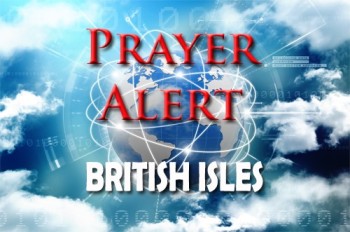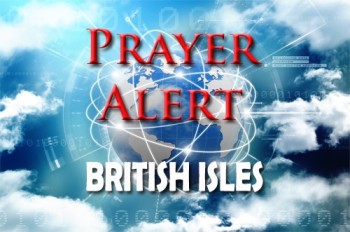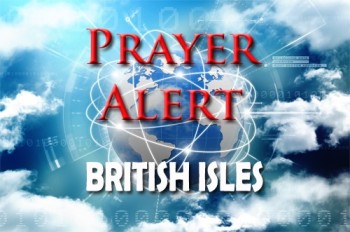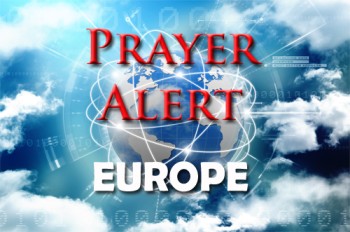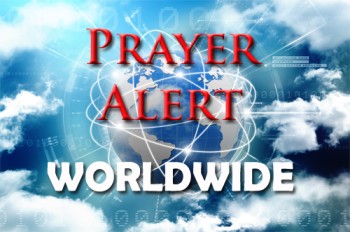
David Fletcher
David Fletcher is Prayer Alert’s Editor.
He is part of a voluntary team who research, proof-read and publish Prayer Alert each week.
If you would like to make a donation towards our running costs, please click here.
Rachel Reeves is expected to announce billions of pounds in spending cuts - possibly including welfare - during her spring statement on 26 March. Facing economic challenges and her self-imposed fiscal rules, Reeves cannot borrow for day-to-day spending, leaving cuts as one of her only options. The Treasury is submitting proposals to the Office for Budget Responsibility (OBR) ahead of its economic forecast. Reports suggest that a four-point plan of planning reform, Whitehall cuts, regulation cuts, and welfare cuts will be central to Reeves' strategy. Her fiscal policies require maintaining a £10 billion buffer, yet sluggish growth and rising borrowing costs are forcing difficult decisions. The Government is also bracing for economic impacts from global trade challenges, including Donald Trump’s trade policies. The government faces tough choices between tax hikes or further cuts: the outcome of its decisions will significantly impact public services and financial stability in the coming years.
England’s chief medical officer, Sir Chris Whitty, will examine whether under-16s should be banned from social media platforms like Facebook and Instagram. Ministers are commissioning his advice amid growing concerns over the impact of excessive smartphone use on young people’s mental health. The average British 12- to 15-year-old spends around 35 hours a week on a smartphone, raising alarms about sleep, well-being, and educational outcomes. Campaigners argue that tech companies prioritise profits over child safety, while some MPs claim the Government is moving too slowly on protections. A proposed bill sought to raise the digital age of consent to 16, making it harder for social media sites to collect children’s data. However, the Government is expected to take a softer approach, commissioning a review rather than implementing an outright ban. With Australia having already passed a ban on under-16s using social media, pressure is mounting for the UK to act. Ministers remain cautious, balancing child safety with concerns about stifling tech growth.
Zhenhao Zou, a PhD engineering student at University College London, has been convicted of drugging and raping ten women. Authorities fear he may have attacked up to fifty more victims in the UK and China. Zou filmed his crimes, storing over 1,600 hours of footage from hidden cameras and his mobile phone. The evidence was so disturbing that prosecutors secured eleven rape convictions, despite only two victims coming forward. His crimes spanned from 2019 to 2023, targeting women in London and his home country. Police are appealing for more victims to come forward, describing Zou as one of the most prolific sex offenders in British history. Zou’s depravity included drugging women with GHB, imprisoning them, and forcing them into terrifying ordeals. His trial left jury members in tears as they watched harrowing footage. He now faces sentencing for multiple counts of rape, voyeurism, and false imprisonment. Authorities urge anyone with information to contact This email address is being protected from spambots. You need JavaScript enabled to view it..
Scientists at the University of Cambridge have discovered how aspirin may help prevent cancer from spreading. Their research suggests that the drug enhances the immune system’s ability to fight cancer by stopping platelets from suppressing T-cells, the body’s natural defence against cancer. When cancer cells break away from a tumour, they try to spread elsewhere in the body - a process called metastasis, which causes most cancer deaths. Normally, T-cells can destroy these wandering cancer cells. However, platelets, which help stop bleeding, interfere with T-cell activity, allowing cancer to spread. Aspirin appears to disrupt this process, restoring the immune system’s ability to attack cancer. While these findings are promising, scientists caution against self-medicating with aspirin, as it carries risks such as internal bleeding. Clinical trials are ongoing to determine which patients may benefit. Researchers hope this breakthrough will eventually lead to safer, more targeted treatments that mimic aspirin’s benefits without its risks.
Irish Taoiseach Micheál Martin met Keir Starmer in Liverpool ahead of a historic UK-Irish summit. The event brings together cabinet members from both governments to strengthen ties in trade, energy, and security. Discussions will focus on economic growth, investment, and cooperation in renewable energy, technology, AI, and security. A new data-sharing agreement will be announced to boost offshore energy production. Additionally, Ireland will unveil £185.5 million in investments in the UK, expected to create over 2,500 jobs. The summit is taking place amid heightened security concerns in Europe. Martin praised Starmer’s leadership, emphasising the importance of peace and international cooperation. Starmer expressed his commitment to deepening UK-Irish relations, stating that previous ties had not reached their full potential. This meeting marks a new era of collaboration, reinforcing economic and diplomatic ties between the two nations. The summit concludes before Martin attends a European Council meeting in Brussels.
Rev Bernard Randall, a former chaplain at Trent College in the UK, has been granted a full retrial after a court overturned a 2022 ruling which upheld his dismissal. He was removed from his position after delivering a 2019 sermon encouraging students to debate and engage critically with LGBT teachings introduced at the school. The controversy began when the school adopted guidance from Educate and Celebrate, an organisation aimed at embedding gender identity and sexual orientation into school culture. In response, Randall told students that they should not feel compelled to accept ideologies conflicting with their religious beliefs. He was then dismissed, reported to a government counter-terrorism programme, and barred from ministry within the Church of England. Supported by the Christian Legal Centre (CLC), Randall filed a lawsuit in 2021 alleging discrimination and unfair dismissal. The initial tribunal ruled against him; however, the recent decision by Judge James Tayler found evidence of anti-Christian bias in the original panel, leading to the retrial.
Donald Trump’s administration has reportedly halted, at least partially, intelligence sharing with Ukraine, a move that could severely impact Kyiv’s defence against Russia. National security adviser Mike Waltz and CIA Director John Ratcliffe confirmed a pause is in place, suggesting it might be lifted if Ukraine takes steps toward negotiations. The intelligence freeze follows a suspension of US weapons deliveries, aimed at pressuring Ukraine into a peace deal. Volodymyr Zelensky has signaled a willingness to negotiate, and renewed talks between US and Ukrainian officials are expected soon. However, critics warn that cutting intelligence and military aid ‘pretty much guarantees a Russian victory without there needing to be a peace deal’. Meanwhile, concerns remain over whether the administration or Elon Musk will continue allowing Starlink, a vital communication tool for Ukraine. Some US military and intelligence officers feel that ‘we are abandoning our allies on the battlefield’.
Germany’s conservative leaders have argued that the country should quickly reintroduce compulsory military service. Friedrich Merz, leader of the new CDU/CSU government, argues that Europe must take greater responsibility for its defence, especially given NATO’s uncertain future. Defence spokesman Florian Hahn says the suspension of conscription ‘no longer fits the current threat situation’, and wants to see new conscripts before the end of 2025. Merz also supports a mandatory year of military or community service to strengthen personnel numbers. While conscription remains controversial, cross-party support for it is increasing. A new system, put in place by the previous government, will require 18-year-old men to complete a questionnaire about their interest in the army and their physical condition; for women it will be optional. A contingent of men and women will then be invited to a selection process. Without immediate action, Germany’s armed forces risk severe shortages in the coming years.
Donald Trump has imposed a 25% duty on imports from Canada and Mexico and doubled tariffs on Chinese goods to 20%. He says that all three countries have failed to do enough to stem the flow of the deadly opioid fentanyl. These measures could disrupt over $2.2 trillion in trade. China immediately retaliated, announcing new tariffs on US agricultural products and export restrictions on 25 American firms, including those linked to arms sales to Taiwan. Canada and Mexico also pledged countermeasures, with Canada targeting US goods such as beer, wine, and home appliances. Ontario premier Doug Ford even suggested halting nickel shipments and electricity exports to the USA. China, already facing heightened tariffs on semiconductors and electric vehicles, expressed frustration, accusing the US of violating trade agreements. With trade tensions escalating, global markets remain uncertain as major economies brace for economic fallout.
The trial has begun of forty prominent Tunisian opposition figures accused of conspiring against state security. The proceedings sparked outrage as nine detained defendants were forced to attend remotely, a move decried as a violation of fair trial standards. Families of the accused and demonstrators outside the courthouse demanded transparency and judicial integrity, chanting against political repression. While critics regard the trial as part of president Kais Saied’s crackdown on dissent, some citizens support his actions, blaming the opposition leaders for economic hardships. International organisations, including Amnesty International and the UN, have condemned the mass prosecution as a sign of Tunisia’s democratic decline. Meanwhile, the country’s economic crisis deepens, with inflation, unemployment, and stalled IMF negotiations adding to public discontent. The outcome of the trial could shape Tunisia’s political future and global standing.

